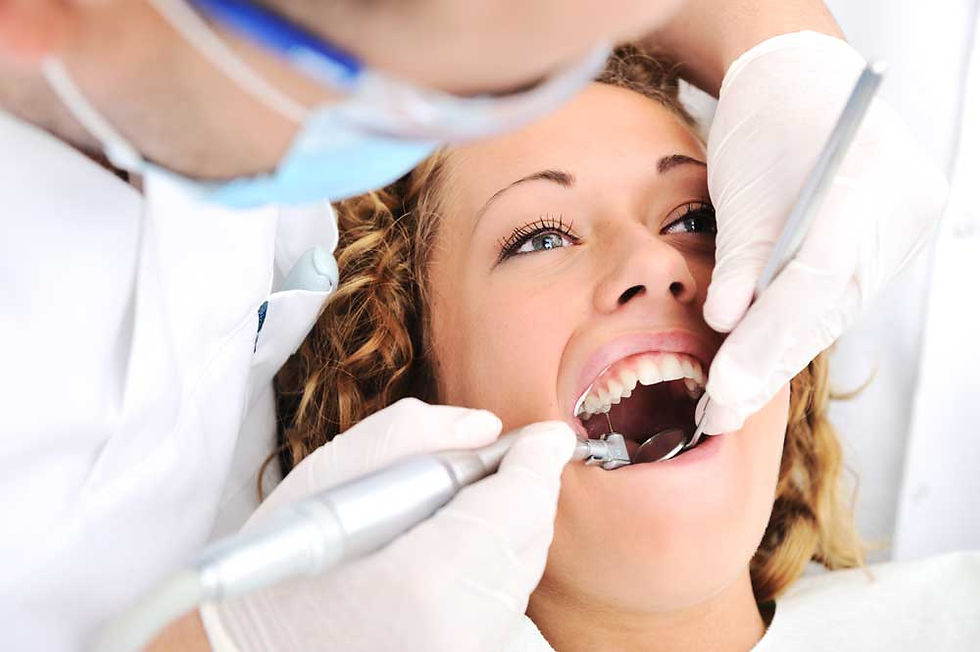Tooth Infection Symptoms: how long until a tooth infection kills you
- Laticia Gibson
- Mar 5, 2022
- 4 min read
How long until a tooth infection kills you : A tooth infection, or dental abscess, can be painful and dangerous if not treated. While most infections are mild, there are many symptoms that indicate an infection has spread to the rest of your body or that the infection will get worse over time. If you notice one or more of these symptoms in yourself or someone else, it’s best to visit your dentist as soon as possible so he or she can get you on the right treatment regimen quickly before the infection gets worse.
What Causes A Toothache?
A toothache is not normal, and should be taken seriously. If you feel like something is off with your pearly whites, it could mean that one of your teeth has become infected. The pain can vary greatly and can even include symptoms such as swelling or sensitivity to hot and cold temperatures. If your dentist cleaning near me notices any of these warning signs, they will likely order an X-ray of your mouth to confirm their suspicions. If an infection is confirmed, antibiotics will typically be prescribed to kill off any lingering bacteria in your mouth. To avoid future problems with oral hygiene, schedule regular visits with a dentist cleaning near me in Seattle that are tailored specifically for those who have gum disease or other common problems related to teeth and gums.
How To Treat A Toothache
Toothaches aren’t very fun. They make it hard to eat, sleep, and function. However, they are also easy to treat with an over-the-counter pain reliever like Advil or Tylenol. If your toothache still doesn’t go away after using these for about a day, then you should see your dentist for further treatment. You should never ignore a toothache; it could be an early sign of something serious like oral cancer.
What Is The Best Medicine For My Mouth Sore?
The best medicine for your mouth sore will depend on what’s causing it. If your dentist detects that you have an early-stage periodontal disease, or gingivitis, they will give you antibiotics. The longer periodontal disease is left untreated, however, and if there is any existing damage to your gums, the better chance of developing further issues like gum recession and tooth loss. To prevent these complications from happening at all, schedule regular visits with your dentist for teeth cleanings and assessments; most dentists in private practice recommend getting cleanings every six months—and twice a year if necessary—to prevent problems from arising in between visits. And it doesn’t hurt to make sure that your dentist maintains valid liability insurance either!
What Are The Worst Side Effects Of Antibiotics?
The most common side effects of antibiotics are stomach upset, nausea, vomiting, and diarrhea. If these symptoms occur for more than a few days after you take an antibiotic, call your doctor or dentist to let them know. You may need to change or stop taking your medication. Serious side effects are rare with antibiotics. Some people can get skin rashes and hives; however, it's not clear if it's caused by antibiotics or something else (like an allergy). Do not stop taking any medications without consulting your health care provider first! It is important that you have all of your questions answered before stopping any treatment program prescribed by your healthcare professional.
How Long Does An Antibiotic Take To Work?
There are many factors that can affect how fast an antibiotic works to cure an infection. It all depends on how serious your condition is, what type of antibiotic you're using, and if other treatments will be needed alongside it. How long it takes for antibiotics to work usually falls within 24 hours to two weeks—and sometimes even longer in some cases. If an infection is left untreated, however, it can lead to further complications or even death; that's why regular dentist cleaning near me is so important! It's likely that any adult who hasn't had their teeth cleaned in over six months will have at least one cavity and possibly several more that won't be visible from looking at their smile alone.
How Often Should I Brush And Floss My Teeth?
The answer to how often should I brush my teeth? is different for every individual. Generally, you should be brushing your teeth twice a day — before breakfast and before bed. Brushing after each meal helps remove bacteria that cause plaque buildup, and it reduces your risk of getting cavities and gum disease (and falling victim to an all-out toothache). However, if you're in a rush in the morning or evening, don't let yourself get away with skipping out on flossing and brushing altogether — just do what you can . The point is that there's no one-size-fits-all approach when it comes to oral hygiene; these are habits that need to be tailored specifically to your lifestyle.
How Do I Know If I Need A Root Canal Or Not?
A dentist cleaning near me is essential to keep your teeth and gums healthy. This procedure should be completed at least twice a year, or more often if recommended by your dentist. Over time, plaque from food can build up in your mouth and between your teeth. This can lead to gum disease, cavities and even tooth loss if left untreated. Finding a reputable dentist cleaning near me can help you identify potential problems early on before they worsen. During your visit, ask about any symptoms of infection that may indicate root canal treatment is necessary—you could have one without even knowing it! If pain or swelling persist for longer than three days after visiting your dentist cleaning near me or nearby clinic , you may need an evaluation by an endodontist.


Comments